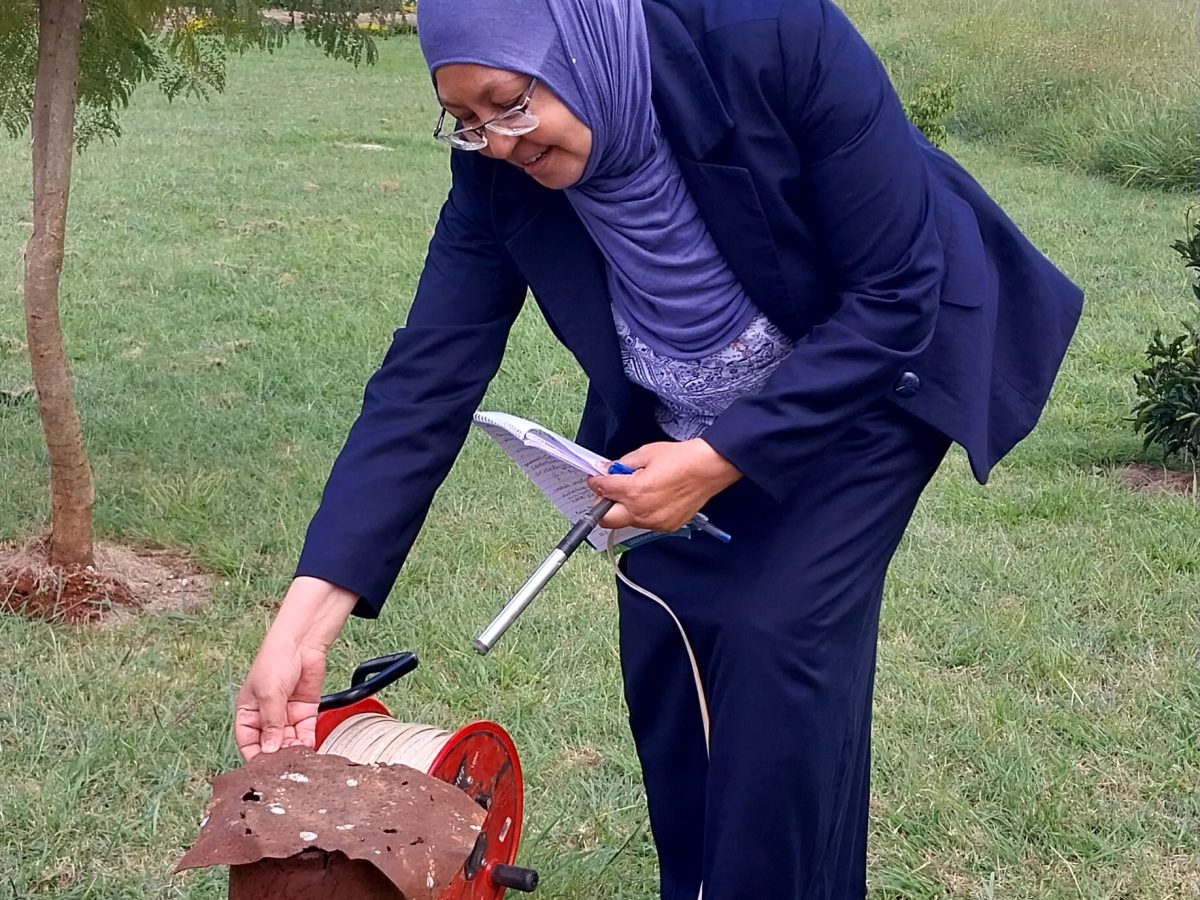Calming conflict through groundwater resilience
Posted in : Blog on 18 January 2025

Igbal Salah, a hydrologist at IGAD, is doing her part to minimize conflict in the borderlands of the HoA by working with CIWA on its Untapping Resilience: Groundwater Management and Learning in the Horn of Africa’s Borderlands initiative and the related World Bank GW4R program.
“A major source of conflict is water,” she says.
The borderlands are hotspots for discord, fragility, and insecurity for many reasons, including competition for water and grazing land, poverty, ethnic tensions, and conflict between armed groups or against the government. Sustainable access to, and management of, groundwater resources can help address some of these drivers of fragility and conflict, especially frequent water-related communal disputes.
The ravages of climate change have heightened tensions and clashes. The Horn of Africa suffered a historic drought for five consecutive seasons from 2021 to early 2023 that was followed by torrential rains and flash floods. Millions of people are still facing food insecurity in the aftermath of these disasters, which has led families to relocate to find food, water, and pastures for their animals, increasing the potential for conflict with host communities.
Within this challenging environment, the World Bank launched GW4R, a US$385 million regional program which, along with CIWA’s Untapping Resilience, is strengthening the ability of IGAD and communities to cope with, and adapt to, climatic shocks and enhancing IGAD’s capacity to promote regional cooperation on WRM and development. Supported activities will draw on and align with IGAD’s Gender Equality Strategy 2023-2030, which includes the priority of increasing women’s participation in sustainable management of natural resources, resilience building, and food and nutrition security.
While increased water security can help address drivers of migration and conflict in the borderlands, there is much to learn about groundwater’s potential for building climate resilience, and that is precisely what Untapping Resilience’s learning agenda is doing.
A long journey toward cooperative transboundary waters management
Born and raised in Sudan, Salah, 53, trained as a civil engineer at the University of Khartoum and earned her master’s degree in hydrology from the University of Galway and a Ph.D. in water resources from University College in Dublin, Ireland. She worked for 25 years in Sudan’s Ministry of Water Resources and Irrigation as a senior engineer and head of the modeling section before moving to Nairobi three years ago to join the staff of the IGAD Climate Prediction and Application Center.
She has been a key IGAD hydrologist working with the World Bank and CIWA on the two groundwater projects.
Salah is leading a joint regional study on the recharge of groundwater related to climate change. In an arid region with little rainfall, it is vital not to deplete the important water resource. After determining the baseline of groundwater storage in the aquifer, the project will then monitor the recharge to establish an appropriate amount of yearly water abstraction. The project will also lead to the development of an Aquifer Management Plan and Decision Support System to inform the development and implementation of investments related to aquifer water to benefit the borderland communities.
Groundwater for Resilience, having completed a feasibility study of the Merti Aquifer with CIWA’s support, is now studying the Dawa Aquifer, shared by Ethiopia, Kenya, and Somalia; the Shebele Aquifer, shared by Somalia and Ethiopia; and the Northern Basement Aquifer, shared by Kenya and Ethiopia.
A major source of conflict is water.
Developing a unified agreement with all three countries over data sharing has proven challenging, Salah says. Although Somalia and Ethiopia have signed a draft procedure, IGAD is still negotiating with Kenya, which has additional legal and other requirements to meet before agreeing to ratify it.
“We are trying,” she says. “It is their security and sovereignty,” she says. “It is a long journey, but we have started.”
Encouraging signs of collaboration
Salah says that she is buoyed by how CIWA’s Untapping Resilience initiative has fostered communication and cooperation between member states.
With regular interaction between technical water resources staff among the three countries during capacity-building events and meetings of the bi-weekly National Focal Group, technical Task Force, Project Steering Committee, and Technical Advisory Committee, she says, they have learned “to speak freely regardless of their national background.”
“Water management in one country will affect the downstream country,” she says. “The project is good for the collaboration of the three countries for the benefit of communities. The three countries have become closer.”
Learn more
This CIWA Program blog is part of our 2025 View from the field Blog Series. Find more stories here.


